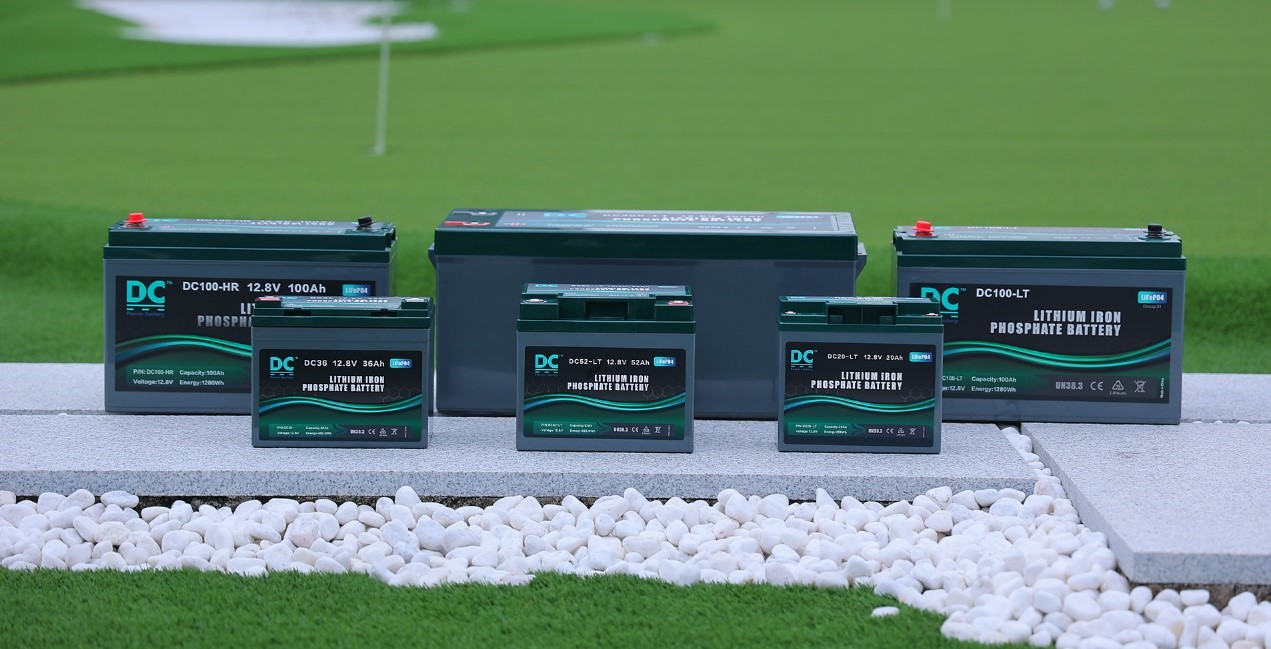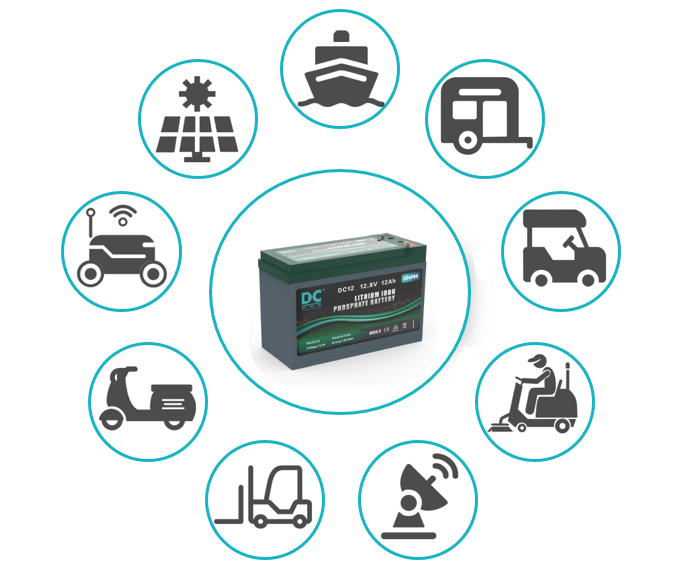Menu
Edit Content
- 4th floor, Cui Hua Da industrial park, No. 144 Botanical Garden Road, Nanyue community, Longgang District, Shenzhen, China.
- +86-755-89213713 / +86-13923469533
- info@dcpowerfactory.com

Recreational Vehicle
-
- 12.8V 100Ah DC100 LiFePO4 RV Battery
- 12.8V 100Ah DC100-LT LiFePO4 Battery
- 12.8V 100Ah DC100-HC LiFePO4 Battery

Golf Cart
-
- 51.2V 100Ah DC48-100 LiFePO4 Battery
- 51.2V 200Ah DC48-200 LiFePO4 Battery
- 51.2V 300Ah DC48-300 LiFePO4 Battery

Cleaning Machine
-
- 25.6V 52Ah DC24-52 LiFePO4 Battery
- 25.6V 100Ah DC24-100 LiFePO4 Battery
- 25.6V 200Ah DC24-200 LiFePO4 Battery

Material Handling
-
- 25.6V 200Ah DC24-200 LiFePO4 Battery
- 51.2V 200Ah DC48-200 LiFePO4 Battery
- 51.2V 300Ah DC48-300 LiFePO4 Battery













